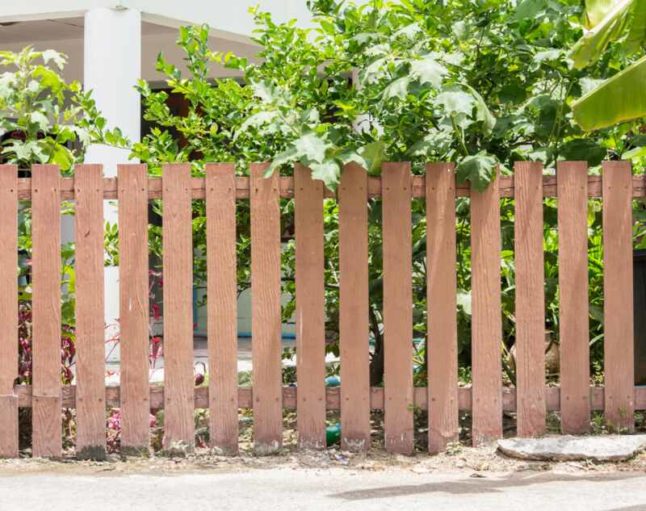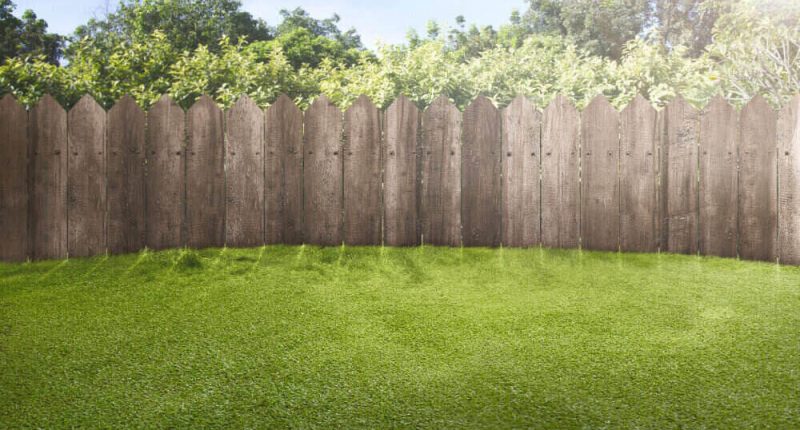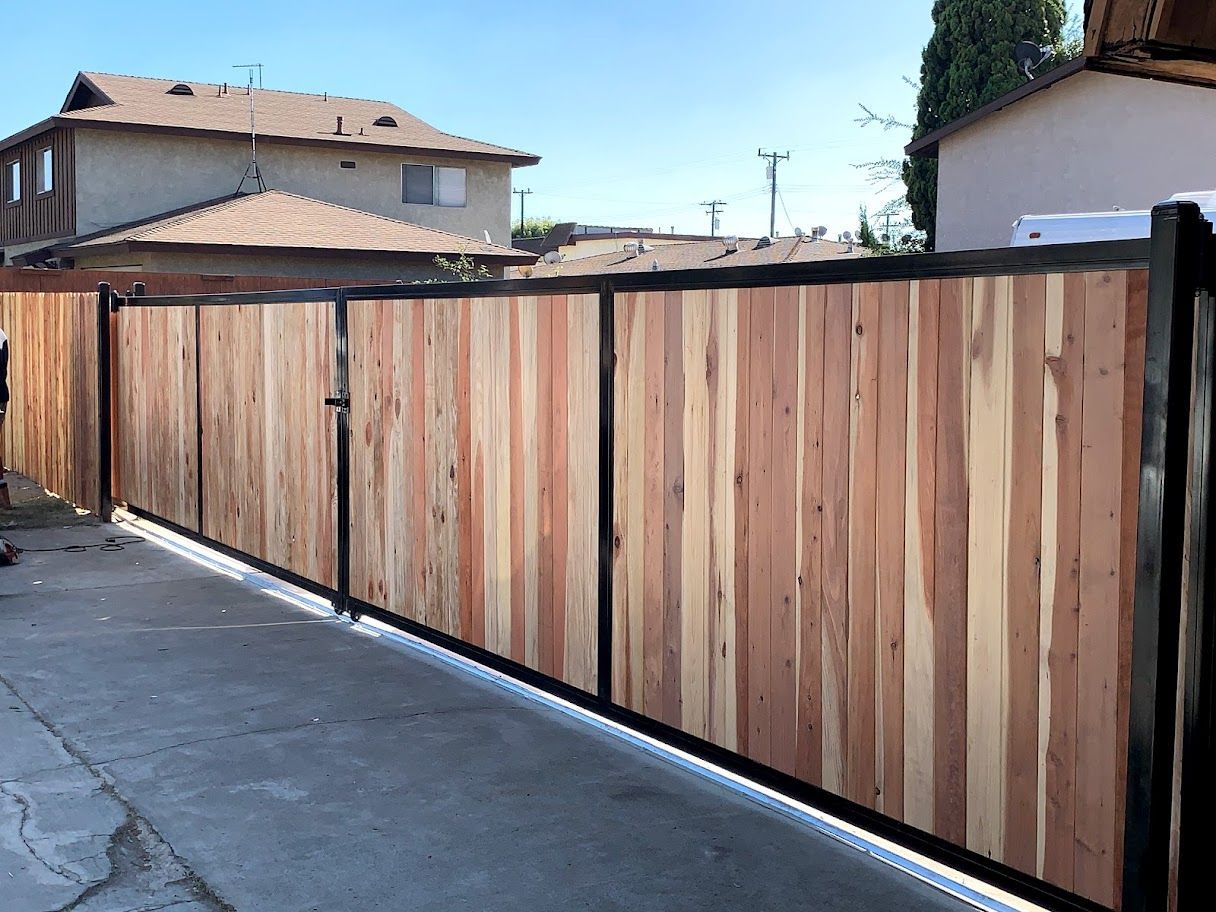All Categories
Featured
Fence your building not only enhances protection and privacy yet also boosts curb charm and boosts property value. Among one of the most typical inquiries property owners ask when considering a fence installation is: Just how much does it set you back? The overall cost depends on several elements, consisting of the product you select, the size of your property, the design of fencing, and labor costs. Below, we break down the crucial elements that contribute to the price of setting up a residential fence.
![]()
Timber Fence: Wood is a popular option for domestic fencings as a result of its all-natural appearance and cost. Standard wood fences, such as want or cedar, can cost anywhere from $10 to $30 per straight foot. Top quality or pressure-treated wood will usually set you back even more. Cedar, as an example, sets you back $20 to $40 per linear foot, while extra ornamental alternatives like redwood may set you back much more.
Vinyl Secure fencing: Vinyl fences are durable, low-maintenance, and supply a clean, modern look. While the first expense is higher, plastic fences tend to last much longer with very little maintenance, making them an affordable option in the lengthy run.
![]()
Chain Web Link Fencing: If security is a priority and you're trying to find an economical option, wire mesh fence are a superb selection. They are generally valued in between $10 and $20 per linear foot. Wire mesh fence don't supply the same visual appeal as wood or vinyl but offer solid protection and are reduced maintenance.
Wrought Iron Fence: Wrought iron fencings are stylish, long lasting, and supply an included layer of safety and security. They come at a greater expense, normally in between $25 and $50 per linear foot. The elaborate layouts and customizations offered for wrought iron fences also include in the cost, making them one of the much more pricey options.
Light Weight Aluminum Secure fencing: Aluminum fences provide the look of functioned iron however at a much more economical cost. Aluminum fences generally set you back in between $20 and $30 per direct foot. They are lightweight, sturdy, and resistant to corrosion, making them an eye-catching alternative for home owners seeking a maintenance-free fence.
For detailed or custom-made fencing styles, expect greater installment costs. Personalized entrances, one-of-a-kind materials, or decorative aspects can add to the intricacy and cost of the installment.
![]()
Permits: Many local federal governments need a license to set up a fence, specifically if it is or exceeds a specific height put near home lines. Allow charges vary by area however commonly vary from $20 to $200. Be certain to examine with your local government to understand any kind of details demands in your area.
Entrance Setup: If your fence consists of an entrance, there will be an added cost. Gate setup usually ranges from $100 to $500, depending upon the material and dimension of eviction.
Landscape Design or Preparation Job: If your building requires extra prep job, such as tree elimination, grading, or removing brush, this will certainly add to the total expense. The quantity of prep work needed can differ depending upon the problem of your backyard, and prices for this can range from a couple of hundred dollars to over $1,000.
Wood Secure Fencing: $1,500 to $3,000. Plastic Secure fencing: $2,000 to $4,000. Chain Web Link Fence: $1,000 to $2,500. Wrought Iron Secure Fencing: $3,000 to $7,000. Light weight aluminum Fencing: $2,000 to $4,000. Remember these are typical price quotes. The actual rate may differ relying on your particular requirements, and it's constantly an excellent idea to obtain quotes from multiple professionals prior to making a choice.
Verdict. The expense of mounting a fencing on a house can vary from a couple of hundred dollars to a number of thousand, depending upon the product, building dimension, and setup intricacy. By understanding the elements that affect the expense, you can make an educated decision and pick a fencing that fulfills your demands and spending plan. Make certain to obtain numerous quotes from reliable fence installers to ensure you're getting the most effective value for your financial investment.

- Material Selection. The product you choose for your fence plays a significant role in identifying the total expense. Right here's a failure of typical fencing materials and their cost ranges:
Timber Fence: Wood is a popular option for domestic fencings as a result of its all-natural appearance and cost. Standard wood fences, such as want or cedar, can cost anywhere from $10 to $30 per straight foot. Top quality or pressure-treated wood will usually set you back even more. Cedar, as an example, sets you back $20 to $40 per linear foot, while extra ornamental alternatives like redwood may set you back much more.
Vinyl Secure fencing: Vinyl fences are durable, low-maintenance, and supply a clean, modern look. While the first expense is higher, plastic fences tend to last much longer with very little maintenance, making them an affordable option in the lengthy run.

Chain Web Link Fencing: If security is a priority and you're trying to find an economical option, wire mesh fence are a superb selection. They are generally valued in between $10 and $20 per linear foot. Wire mesh fence don't supply the same visual appeal as wood or vinyl but offer solid protection and are reduced maintenance.
Wrought Iron Fence: Wrought iron fencings are stylish, long lasting, and supply an included layer of safety and security. They come at a greater expense, normally in between $25 and $50 per linear foot. The elaborate layouts and customizations offered for wrought iron fences also include in the cost, making them one of the much more pricey options.
Light Weight Aluminum Secure fencing: Aluminum fences provide the look of functioned iron however at a much more economical cost. Aluminum fences generally set you back in between $20 and $30 per direct foot. They are lightweight, sturdy, and resistant to corrosion, making them an eye-catching alternative for home owners seeking a maintenance-free fence.
- Building Size. The size of your residential property straight affects the complete expense of fencing installation. The larger the area you need to enclose, the much more materials and labor will be called for, causing greater expenses. To identify the overall size of fencing needed, gauge the perimeter of your residential or commercial property and multiply that by the cost of the products you have actually picked. Additionally, larger residential or commercial properties may need even more intricate installations or the requirement for entrances, which can enhance the cost.
- Installment Complexity. The complexity of the installment can additionally influence the complete price. Factors such as surface, ease of access, and design all contribute in figuring out just how hard the installation will certainly be. For example, irregular or sloped terrain can make digging message holes extra difficult, which may call for added labor and time. If your building has challenges, such as rocks or trees, the installment could come to be extra challenging, boosting both labor prices and installation time.
For detailed or custom-made fencing styles, expect greater installment costs. Personalized entrances, one-of-a-kind materials, or decorative aspects can add to the intricacy and cost of the installment.
- Labor Costs. Labor costs can differ depending on your place, the experience of the fence installer, and the time it takes to complete the installation. Labor expenses may raise if there are problems such as difficult surface, old fencing removal, or a need for licenses.

- Added Expenses. Along with material and labor costs, there may be extra costs to take into consideration:
Permits: Many local federal governments need a license to set up a fence, specifically if it is or exceeds a specific height put near home lines. Allow charges vary by area however commonly vary from $20 to $200. Be certain to examine with your local government to understand any kind of details demands in your area.
Entrance Setup: If your fence consists of an entrance, there will be an added cost. Gate setup usually ranges from $100 to $500, depending upon the material and dimension of eviction.
Landscape Design or Preparation Job: If your building requires extra prep job, such as tree elimination, grading, or removing brush, this will certainly add to the total expense. The quantity of prep work needed can differ depending upon the problem of your backyard, and prices for this can range from a couple of hundred dollars to over $1,000.
- Total Cost Quote. The overall expense of setting up a fence will rely on your product options, home size, and the complexity of installment. For a tiny domestic building, you might anticipate the following:
Wood Secure Fencing: $1,500 to $3,000. Plastic Secure fencing: $2,000 to $4,000. Chain Web Link Fence: $1,000 to $2,500. Wrought Iron Secure Fencing: $3,000 to $7,000. Light weight aluminum Fencing: $2,000 to $4,000. Remember these are typical price quotes. The actual rate may differ relying on your particular requirements, and it's constantly an excellent idea to obtain quotes from multiple professionals prior to making a choice.
Verdict. The expense of mounting a fencing on a house can vary from a couple of hundred dollars to a number of thousand, depending upon the product, building dimension, and setup intricacy. By understanding the elements that affect the expense, you can make an educated decision and pick a fencing that fulfills your demands and spending plan. Make certain to obtain numerous quotes from reliable fence installers to ensure you're getting the most effective value for your financial investment.
Latest Posts
Why Consistent Car Maintenance at Montclare Auto Repair Saves You Money
Published en
1 min read
Smooth Light Weight Aluminum Gutters: The Smart Option for Your Home
Published en
1 min read
Explore Top Car Repair Solutions at Montclare Auto Repair – Drive with Confidence
Published en
1 min read
More
Latest Posts
Why Consistent Car Maintenance at Montclare Auto Repair Saves You Money
Published Jun 01, 25
1 min read
Smooth Light Weight Aluminum Gutters: The Smart Option for Your Home
Published May 27, 25
1 min read
Explore Top Car Repair Solutions at Montclare Auto Repair – Drive with Confidence
Published May 27, 25
1 min read